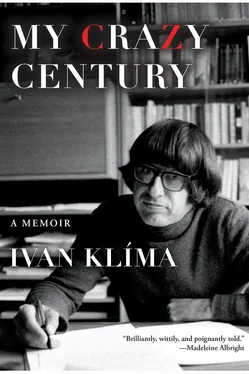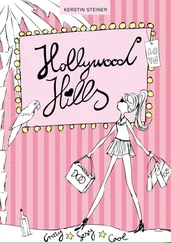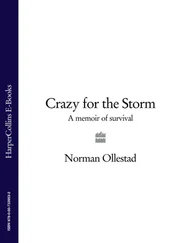Shortly thereafter, Aunt Hedvika, who had spent so many years in the Soviet Union and was well-informed, came to visit. She seemed extremely agitated. Not only was everything we heard true, she assured us, but this was only a small part of it. And she, who had never said a single bad or even critical word about her time in Russia, began to talk. When she was working in Czech broadcasting at the Moscow radio station, people she was working with would be there one day and then gone the next, and no one dared ask where they were or what had happened to them. No one even dared pronounce their names. And if one of the disappeared had happened to write a book or an article, not a word of it could be cited, and the book was immediately removed from the library and destroyed. Merely cracking a stupid joke or just laughing at it was enough for the security forces to come for the unfortunate person. Sometimes the police would come that very night and sentence him to ten years in a camp in Siberia. Or he would disappear completely, and at most his family would receive a package containing his clothing.
I asked why she’d never told us about this, why she hadn’t warned us after she’d lived through it.
She explained that she couldn’t precisely because she had lived through it. No one was watched more than those who had lived in the Soviet Union and could testify to these horrors. No one would have believed her anyway
A few weeks later at a party meeting of the department, excerpts of Khrushchev’s heretical speech were read.
I was surprised that a lot of people had not heard about the speech, or, if they had, thought the whole thing was an invention of the enemy. Now they were stunned. Some of the women started sobbing, and I remember hearing the hysterical cry: “You deceived us.”
*
It appeared that things were actually starting to change. At meetings and previously boring seminars on Marxism-Leninism, people started speaking more freely. If innocent people had been condemned in the Soviet Union, what had happened here? Wasn’t it necessary to reconsider all the political trials? Shouldn’t the Communist Party, which had apparently deceived its members, step down?
At a party meeting we resolved that an extraordinary congress would convene to undertake rectifications.
Like so many other people, I still believed in the possibility of rectification, or, deceived by the sudden feeling of freedom, I unreasonably and senselessly placed my hopes in it.
It was in this atmosphere of intoxication that we began to prepare for the student Majáles — the traditional May celebration (whose origin is centuries older than the garish May Day festivities). We constructed masks and trudged singing from our department along the bridge in the direction of the exhibition ground where we planned to choose the king of Majáles. I don’t remember who came up with the idea that I don a crumpled broad-brimmed hat and tattered coat to represent an unfortunate and persecuted kulak. Along with the others I sang “Gaudeamus Igitur” and was proud to be a student of one of the world’s oldest universities and that I was helping to renew the venerable tradition of so-called academic freedom.
When I got back to the department, two men stopped me at the entrance, showed me some sort of document, and demanded my identity card. They led me behind the porter’s lodge into the Youth Union committee room and began their interrogation.
Where was I coming from?
A procession.
What did I mean by procession?
At that moment I recalled Father’s recent advice not to say anything about what you were doing. Even if you were doing nothing at all.
It was a procession of students.
Who had organized it?
I answered that I didn’t know, but they could certainly find out. (Everything was always organized by either the party or a Youth Union committee.)
They yelled at me not to tell them what to do. They wanted me to tell them who had invited me to the procession.
I really didn’t remember.
What had I been disguised as?
I hadn’t been disguised. I’d never possessed a disguise in my whole life.
One of the men started shouting at me not to start pontificating. Who was I pretending to be?
A man in a hat.
They started to shriek that if I was trying to make fools of them, this would all end unpleasantly.
I probably wanted to look like a farmer, I explained.
Why? Did I have a farmer’s background?
I said nothing.
Why had I shouted antistate slogans?
I said that I didn’t shout anything because I don’t shout slogans on principle.
Then who was shouting antistate slogans if not you?
I said I hadn’t heard anyone shouting any slogans.
Two more detained students were brought in, two of my classmates dressed in Moravian folk costumes.
My two men were obviously in a hurry to move on. The one who had been asking the questions now emphatically warned me not to think that the time had come for any sort of counterrevolutionary activity. The working class had made it possible for us to study so that we might become useful members of a Socialist society, not so that we could walk around the streets shouting antistate slogans.
The other one pointed out that they had my name, and if they ever caught me again at similar provocations, I wouldn’t get out of it so easily.
It occurred to me in the tram that nothing essential had changed so far. Academic freedom had certainly not begun to apply.
Essay: Dictators and Dictatorship, p. 467
I turned in my thesis on Karel Čapek; it was over two hundred pages and thus exceeded the required length severalfold and dismayed one of my young reviewers who worked at the Institute for Czech Literature. According to him, Čapek had been too connected to the “bourgeois republic,” something I had insufficiently criticized, and in his opinion I had overestimated the significance of Čapek’s work. But my defense speech was successful, and I received a degree in philology.
I left the department with my red diploma, boasted of it at home, and then put it in a box with other documents and never needed to pull it out again.
My field did not provide many opportunities to make a living. I wanted to write, and for this it seemed more appropriate to work as an editor for some journal. Not many were being published, however, except specialized journals for beekeepers, mushroom hunters, or different kinds of engineers. The political situation that arose after the ruling party — of which I was a member — publicly admitted, at least partially, that in some areas it had acted wrongfully worked to my advantage. Party functionaries realized they would have to curry favor a little with the citizens even in the intellectual sphere (if popular journals can be considered intellectual). In addition to Socialist platitudes, they would have to offer readers, in carefully scrutinized printed matter, some entertainment. This led to their decision to transform the weekly magazine Květy into a reader-friendly family magazine containing articles on fashion, chess, and stamp collecting, and a children’s corner as well as reportage from home and abroad. Květy was seeking young editors to help realize this goal.
One day I decided to stop by its editorial office. I knew no one there, not even a name, and I didn’t have anything to show except a single story that had been snubbed and a few newspaper articles. The editor I spoke with was ten years older than I was. He said he wanted the news section, which he was in charge of, to start writing about bona fide life problems, not just about how somewhere the five-year plan was being fulfilled. He believed Květy would stand behind even articles that were exceptionally critical. He told me he would take a look at my work and in the meantime I could fill out the necessary paperwork at the personnel office.
Читать дальше












